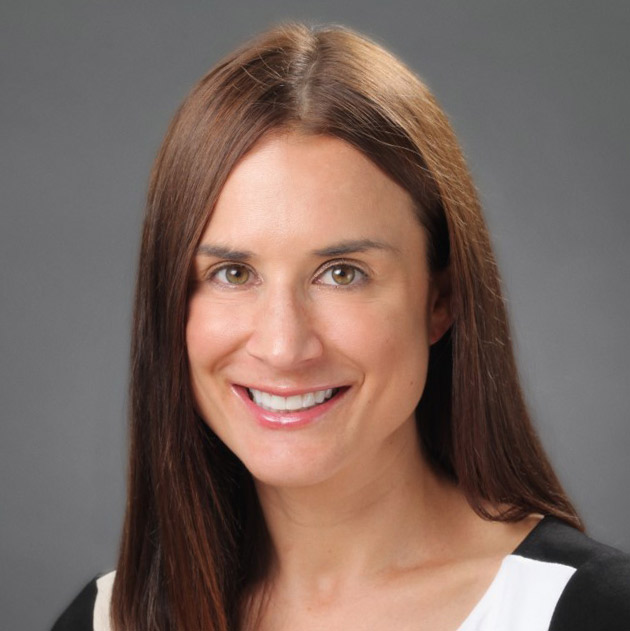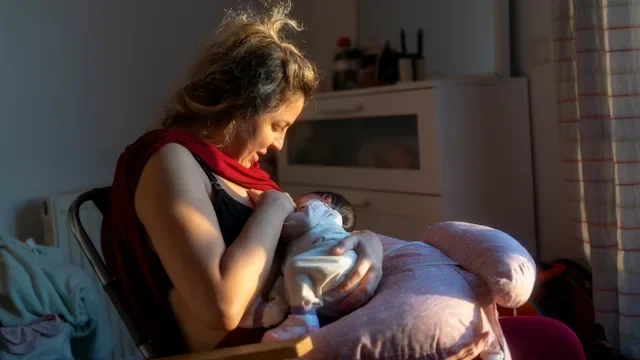Key takeaways:
A “geriatric pregnancy” is an outdated term used to describe pregnancy in people who are 35 years and older.
While geriatric pregnancies are considered high-risk pregnancies, the majority result in healthy babies.
Specialized prenatal care for people 35 years and older who are pregnant can ensure a healthy pregnancy.
Pregnancy is an exciting time that comes with joys and challenges. Ensuring a healthy pregnancy is a key goal for all people going through pregnancy. While pregnancy over the age of 35 is associated with some increased risks, there’s a lot one can do to ensure a healthy pregnancy at any age.
What is a geriatric pregnancy?
A “geriatric pregnancy” is an outdated, but still commonly used, term to describe pregnancy in people 35 years and older. The term “advanced maternal age” is the more recent term to describe people older than 35 years who are pregnant.
Defining pregnancy this way can be problematic, but the main reason a term like this was developed is because as one ages, complications become more common during pregnancy. As assisted reproductive technology (ART) advances and pregnancy becomes possible even after menopause, it’s even more important that the unique needs of this group are addressed by insurance providers and healthcare professionals.
Search and compare options
Risks associated with geriatric pregnancy
There are risks with pregnancy at any age, but complication rates increase with age. In fact, you may be twice as likely to have pregnancy complications when over the age of 40 as compared to people ages 20 to 34.
Complications associated with advanced maternal age include higher rates of:
Pregnancy loss
Genetic abnormalities
Stillbirth
Gestational diabetes
Pre-eclampsia
Higher rates of cesarean section
Preterm birth
Placental abruption
Some of these risks are due to the higher rates of genetic abnormalities in a woman’s oocytes (eggs) as they age. And, as people get older, they are more likely to have other medical problems that can also complicate pregnancy.
Although not completely understood, age itself is associated with a higher risk of pregnancy complications. That means people over the age of 35 are more likely to have pregnancy complications even if they have no other health concerns before or during pregnancy.
Despite all of this, most pregnancies after 35 result in the birth of a healthy baby.
How old is too old to have a baby? Find out what research shows about having a baby later in life.
When are you most fertile? Learn more about the window when you’re most likely to get pregnant.
What is infertility? If you’re having trouble getting pregnant, here’s when you should get help.
Other than age, what else causes a high-risk pregnancy?
Besides age, many other factors can make a pregnancy high risk, including:
Medical conditions present before pregnancy, like lupus, chronic kidney disease, or heart problems
Developing medical conditions during pregnancy — for example, high blood pressure or diabetes
Being pregnant with twins, triples, or multiples
Having a previous complicated pregnancy or pregnancy loss
Experiencing cervical or uterine issues like cervical insufficiency
Having issues with the placenta
Special testing for geriatric pregnancies
Prenatal care is important for all pregnancies. Because of the increased risk of pregnancy complications in people over the age of 35, specialized care is often recommended and usually covered by health insurance. Typical testing for advanced maternal age pregnancies can include:
Genetic testing
Level II ultrasounds
Biophysical profiles
Visits with maternal-fetal medicine specialists
Read more like this
Explore these related articles, suggested for readers like you.
What is a maternal-fetal medicine specialist?
A maternal-fetal medicine (MFM) specialist is a doctor who specializes in high-risk or “nonroutine” pregnancies, including advanced maternal age pregnancies. An MFM specialist has additional required training after obstetrics and gynecology residency.
What is a level II ultrasound?
A level II ultrasound is an ultrasound examination done between 18 and 20 weeks of pregnancy. It’s recommended in cases of high-risk pregnancy but is sometimes offered as a routine part of prenatal care. It includes a more detailed evaluation of the baby’s anatomy, amniotic fluid, and placenta.
What is a biophysical profile and nonstress test?
A nonstress test (NST) measures fetal movements and fetal heart rate using a fetal monitor. When an NST is combined with an ultrasound, it’s called a biophysical profile. The biophysical profile evaluates the baby’s health and is done at the start of the 32nd week of pregnancy. The biophysical profile evaluates the baby’s movements, muscle tone, breathing, amniotic fluid, and the heart rate.
What is cell-free DNA?
Cell-free DNA is a blood test that looks for trisomy 21 (Down syndrome), trisomy 18, and trisomy 13. Cell-free DNA doesn’t test for congenital heart disease or genetic conditions. It’s now a routine part of prenatal care and done at the 10th week of pregnancy.
What can you do to ensure a safe pregnancy at an advanced maternal age?
There are many things people can do to ensure a healthy pregnancy. Fortunately, these are the same at any age and include:
Getting prenatal care
Avoiding medications that aren’t safe during pregnancy
Avoiding smoking, alcohol, and other substances
Taking folic acid and other supplements, like prenatal vitamins, recommended by healthcare professionals
Eating a well-balanced, nutritious diet
Frequently asked questions
This will vary from person to person. A woman is able to get pregnant as long as she’s still ovulating and having menstrual cycles. Menopause — once you’ve stopped having your period for at least 12 months — signals that the ability to get pregnant naturally is over. For most women, the average age of menopause is between 46 and 55 years old, but this can vary.
There’s no specific age that prevents a man from getting a woman pregnant. But, the amount and quality of sperm that men produce declines with age — particularly after age 35. After age 40, the risks of genetic complications continue to rise. Men who father children after age 50, are more likely to have children with conditions like trisomy 21 (Down syndrome) or autism.
Most women stop having a regular monthly period around the age of 52, but each woman is different. In rare cases, women can have their period into their late 50s or later. Some things that can affect when you stop having your periods include:
Family history
Smoking
If you’ve ever had children
Certain medical conditions (like thyroid disease or treatment for cancer)
This will vary from person to person. A woman is able to get pregnant as long as she’s still ovulating and having menstrual cycles. Menopause — once you’ve stopped having your period for at least 12 months — signals that the ability to get pregnant naturally is over. For most women, the average age of menopause is between 46 and 55 years old, but this can vary.
There’s no specific age that prevents a man from getting a woman pregnant. But, the amount and quality of sperm that men produce declines with age — particularly after age 35. After age 40, the risks of genetic complications continue to rise. Men who father children after age 50, are more likely to have children with conditions like trisomy 21 (Down syndrome) or autism.
Most women stop having a regular monthly period around the age of 52, but each woman is different. In rare cases, women can have their period into their late 50s or later. Some things that can affect when you stop having your periods include:
Family history
Smoking
If you’ve ever had children
Certain medical conditions (like thyroid disease or treatment for cancer)
The bottom line
Pregnancy after age 35 is becoming more common. While these pregnancies can come with risks, most result in healthy babies. People 35 and older can take steps to have a healthy pregnancy, such as receiving specialized medical care.

Why trust our experts?


References
American College of Obstetricians and Gynecologists. (2023). Having a baby after age 35: How aging affects fertility and pregnancy.
American College of Obstetricians and Gynecologists. (2024). Prepregnancy counseling.
Cardin, M. (2019). Reconsidering “advanced maternal age”: Communicating about pregnancy, disability risk and ageing. Feminist Media Studies.
Centers for Disease Control and Prevention. (2024). About alcohol use during pregnancy.
Ekberg, M. E. (2014). Assisted reproduction for postmenopausal women. Human Fertility.
Frederiksen, L. E., et al. (2018). Risk of adverse pregnancy outcomes at advanced maternal age. Obstetrics & Gynecology.
International Federation of Gynecology and Obstetrics. (n.d.). 10 reasons for male infertility.
Kahveci, B., et al. (2018). The effect of advanced maternal age on perinatal outcomes in nulliparous singleton pregnancies. BMC Pregnancy and Childbirth.
March of Dimes. (2020). Pregnancy after age 35.
MedlinePlus. (2023). Assisted reproductive technology.
Northwell Health. (n.d.). Level II ultrasound.
Office on Women’s Health. (2025). Menopause basics.
Sauer, M. V. (2015). Reproduction at an advanced maternal age and maternal health. Fertility and Sterility.
Stanford Medicine Children’s Health. (n.d.). Biophysical profile.
The Menopause Society. (n.d.). Premature menopause.
Umana, O. D., et al. (2024). Antenatal fetal surveillance. StatPearls.
Yale Medicine. (n.d.). High-risk pregnancy.

















